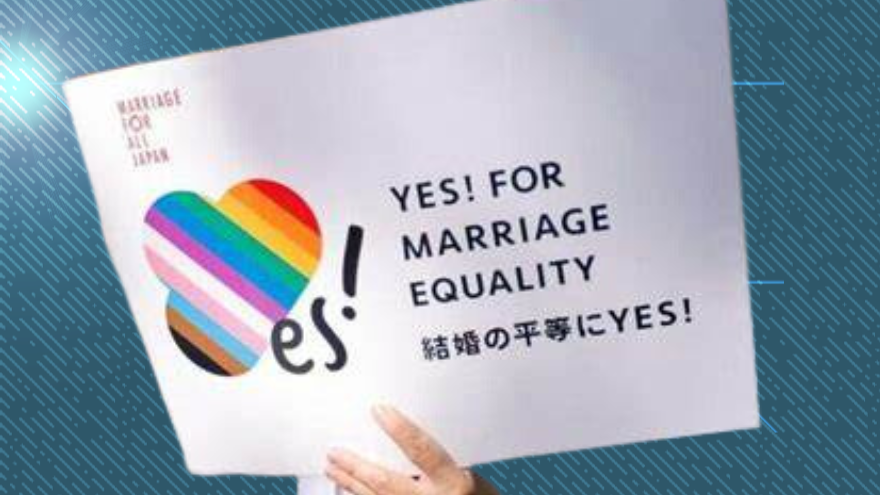A Japanese rule barring same-sex marriage is unconstitutional according to a new court ruling.
The Nagoya District Court’s ruling challenges national law defining marriage as between a man and a woman. This is the second time in the last two years a court has ruled against the law.
"This ruling has rescued us from the hurt of last year's ruling that said there was nothing wrong with the ban, and the hurt of what the government keeps saying," Yoko Mizutani, a lawyer challenging the current law, told press outside the court, per Reuters.
At least four cases and rulings have been brought against the policy in the last two years.
In June of 2022, the Osaka District Court ruled barring legal recognition of same-sex marriage was not unconstitutional because marriage was a protected system for heterosexual couples who bear and raise children. The court found that the Japanese constitution, which was adopted in 1947, refers exclusively to the freedom of marriage for male-female couples and does not include same-sex couples
The ruling reversed an earlier decision from a district court invalidating the ban.
A court in Toyko subsequently ruled in favor of the ban, although it found that failing to legally protect same-sex families was a violation of human rights.
Despite ruling in favor of the male couple that challenged the law, the Nagoya District Court did not grant them the $7,100 (1 million yen) each they were seeking in compensation. The couple filed their complaint in February of 2019, arguing that the lack of recognition was discriminatory and violated Article 14 of the Constitution.
They also argued that Article 24, which legally defines marriage, does not explicitly exclude same-sex couples but rather says that “marriage shall be based only on the mutual consent of both sexes,” per Kyodo News.
Approximately 300 municipalities – where 65% of the population reside – across Japan recognize same-sex partnership agreements, which grant them some restricted rights.
Legally, same-sex couples cannot inherit each other's assets or claim parental rights over one another's children. They also do not have guaranteed visitation rights at hospitals.
“Prime Minister Fumio Kishida has said that allowing same-sex marriage would change Japanese society and values and requires careful consideration,” reports ABC News. “He has not clearly expressed his view as conservatives in his party object to legislation forbidding discrimination against LGBTQ+ people. Kishida has said he will listen to various views and watch court decisions on same-sex marriage.”
Presiding Judge Osamu Nishimura described the reasoning behind not permitting the recognition of same-sex marriage as “shaky” and said the issue is now “difficult to ignore.”
Opinion polls indicated 70% of Japan’s population supports same-sex marriage – a 6% increase from February.
A fifth lawsuit challenging the country’s same-sex policy was filed on the island of Kyushu. A ruling is expected on June 8.

